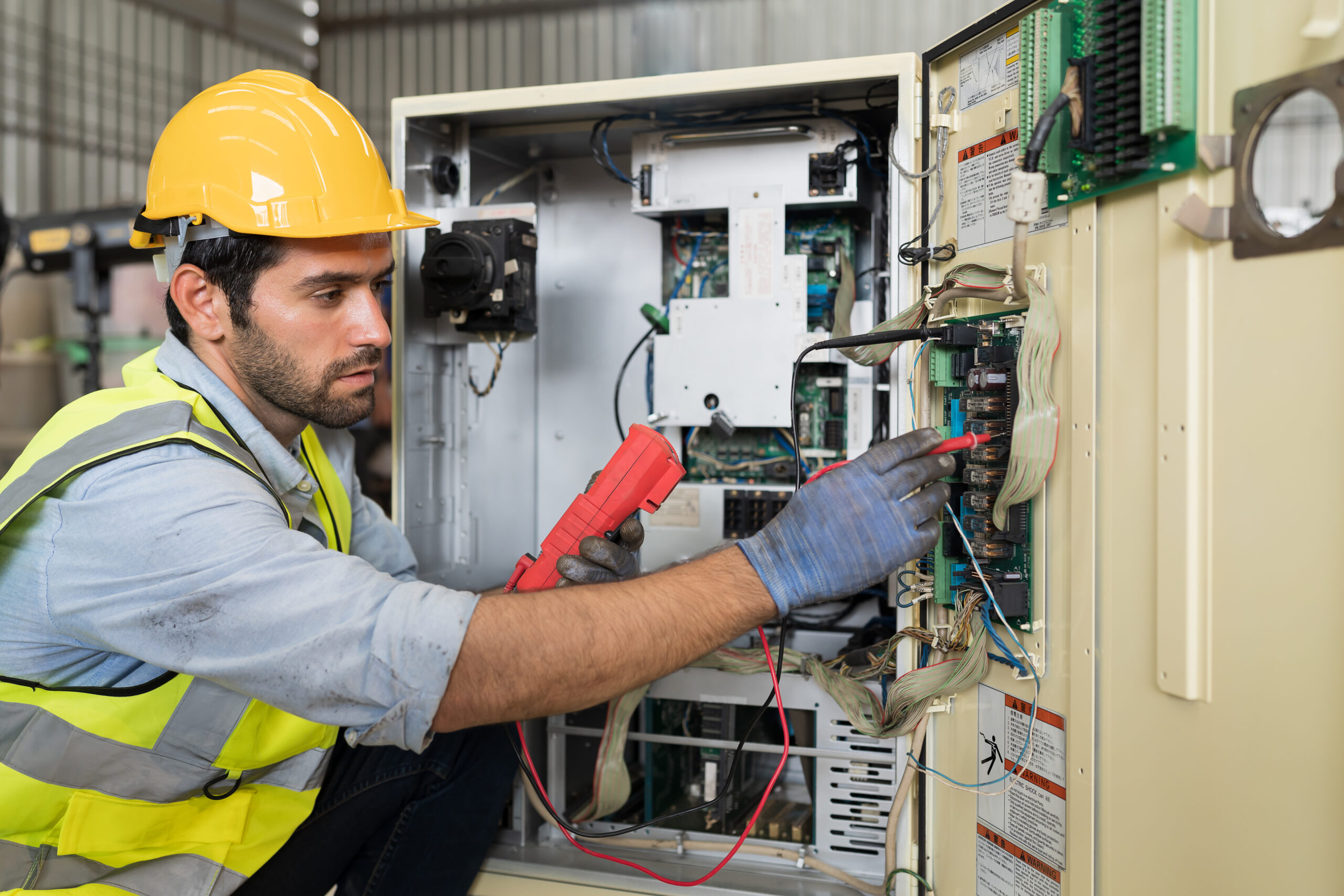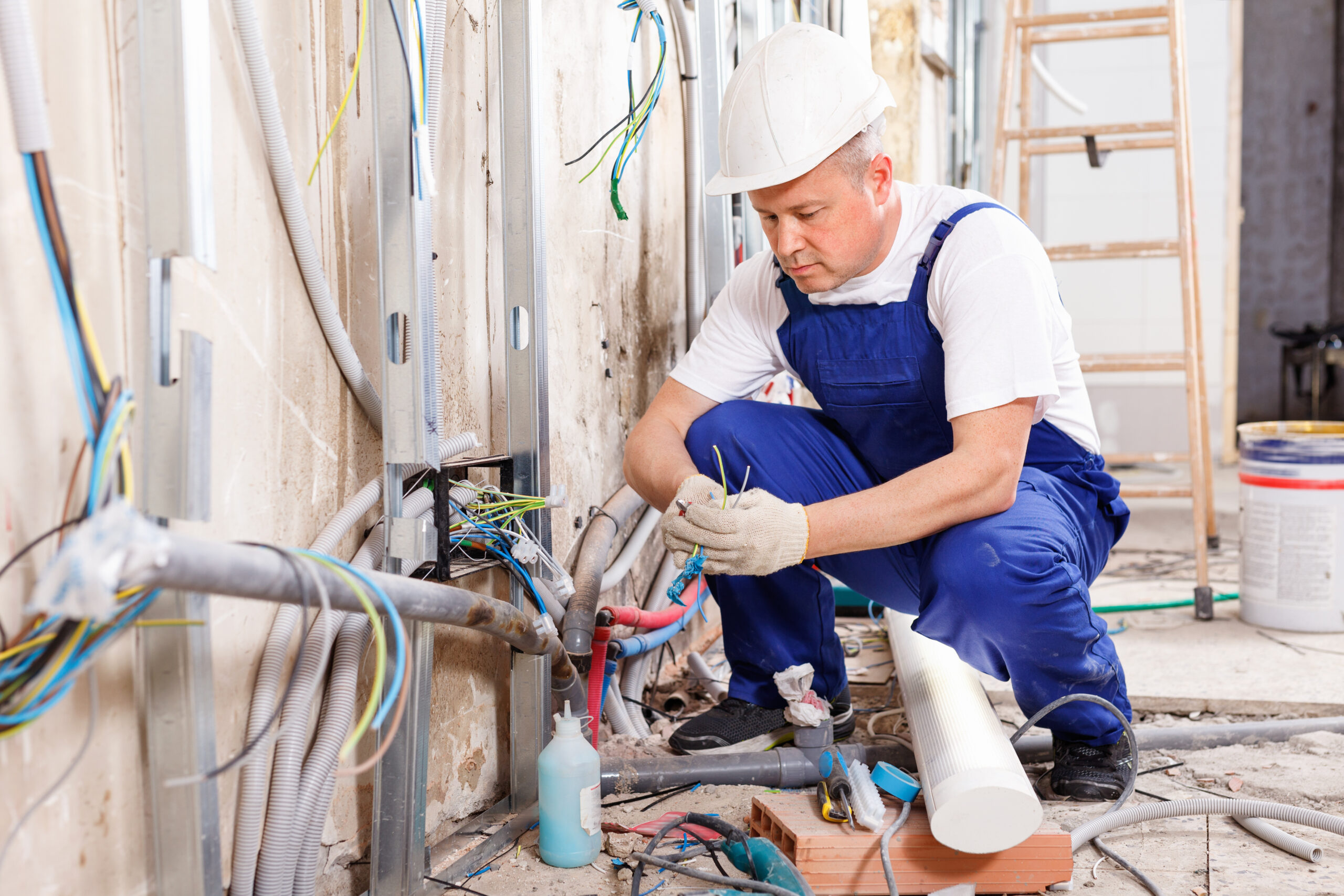Electrical work is a critical aspect of home improvement projects, but it’s important to understand when you need a permit for such work. In Texas, certain electrical projects require a permit to ensure they comply with safety standards and building codes. This guide will walk you through the types of electrical work that require a permit in Texas, the permit application process, and the consequences of failing to obtain a permit.
Why Permits are Required
Permits are necessary for electrical work in Texas to ensure that installations, alterations, and repairs comply with the National Electrical Code (NEC), which is adopted by the state. Permits also help protect property owners by ensuring that work is performed by a licensed Electrician Fort Worth TX who follows safety standards. Additionally, permits provide a record of the work performed, which can be useful for insurance purposes or when selling the property.

Types of Electrical Work Requiring a Permit
New Electrical Installations
Any new electrical installations, whether for a new construction or an addition to an existing structure, require a permit. This includes installing new circuits, outlets, and light fixtures. Permits are necessary to ensure that the new electrical work meets safety standards and is properly integrated into the existing electrical system.
Electrical Panel Upgrades
Upgrading or replacing an electrical panel requires a permit. This includes upgrading to a larger panel to accommodate additional circuits or replacing an old panel with a new one. Permits are necessary to ensure that the panel upgrade is done correctly and safely, as the electrical panel is a critical component of the electrical system.
Electrical Repairs
While minor repairs such as replacing a light switch or outlet may not require a permit, major repairs that involve replacing wiring or fixing faulty electrical systems do require a permit. Permits are necessary to ensure that the repairs are done safely and that the repaired electrical system meets safety standards.
Electrical Alterations
Any alterations to the electrical system, such as adding new circuits or reconfiguring existing wiring, require a permit. Permits are necessary to ensure that the alterations are done correctly and safely and that the altered electrical system meets safety standards.
Electrical Service Changes
Changing the electrical service, such as upgrading from a 100-amp service to a 200-amp service, requires a permit. Permits are necessary to ensure that the service change is done correctly and safely, as changes to the electrical service can have significant implications for the electrical system’s safety and performance.
Electrical Rewiring
Complete or partial rewiring of a building, including replacing old wiring with new wiring, requires a permit. Permits are necessary to ensure that the rewiring is done correctly and safely, as improper rewiring can lead to electrical hazards such as fires and electrocution.
Electrical Work in Hazardous Locations
Electrical work in hazardous locations, such as areas with flammable gases or vapors, requires a permit. Permits are necessary to ensure that the work is done safely and that the electrical installations in hazardous locations meet safety standards to prevent the risk of ignition and explosion.
How to Obtain an Electrical Permit in Texas
Whether you plan to get the permit yourself or leave it to a professional Electrician Fort Worth TX, knowing the process is necessary.
- Contact the Local Building Department: Start by contacting the local building department in the city or county where the work will be done. They will provide you with the necessary forms and information on how to apply for a permit.
- Submit the Permit Application: Fill out the permit application form, providing details about the scope of work, location, and other relevant information. You may need to submit a detailed plan showing the proposed electrical work.
- Pay the Permit Fee: There is usually a fee associated with obtaining an electrical permit. The fee amount varies depending on the scope of work and the local building department’s policies.
- Schedule an Inspection: Once the permit is approved, you will need to schedule an inspection with the local building department. An inspector will visit the site to ensure that the work meets safety standards and building codes.
- Complete the Work: Once the work has passed inspection, you can complete the electrical work.
If you want to know more about the importance of employing professional electricians and The Crucial Role of Electrical Professionals in Fort Worth, you may explore Electrical Professionals In Construction’s website now.
Consequences of Not Obtaining a Permit
Failing to obtain a permit for electrical work in Texas can have serious consequences, including:
- Safety Hazards: Electrical work done without a permit may not meet safety standards, posing a risk of fire or electrical shock.
- Legal Issues: Performing electrical work without a permit is illegal in Texas and can result in fines or other legal consequences.
- Insurance Concerns: Insurance companies may deny claims related to unpermitted electrical work, leaving property owners responsible for damages.
- Resale Difficulties: When selling a property, unpermitted electrical work can complicate the sale process and reduce the property’s value.
Conclusion
Obtaining a permit for electrical work in Texas is essential to ensure that the work is done safely and complies with building codes. By understanding the types of electrical work that require a permit and following the proper procedures to obtain one, you can avoid potential safety hazards, legal issues, and other consequences associated with unpermitted work. If you have any questions about whether your electrical project requires a permit, contact your local building department for guidance or hire a reliable Electrician Fort Worth TX from Electrical Professionals In Construction.
Enhance your construction project’s efficiency and compliance with Texas regulations by harnessing the expertise of our Electrical Professionals. Reach out to us today to ensure seamless execution and peace of mind for all your permitted electrical work needs.” Contact us now to streamline your project’s electrical compliance journey.
All About Electrical Work That Requires a Permit in Texas FAQs
1. Do I need a permit for minor electrical repairs, such as replacing a light switch or outlet?
In most cases, minor electrical repairs like replacing a light switch or outlet do not require a permit in Texas. However, if the repair involves major work such as replacing wiring or fixing faulty electrical systems, a permit is typically required.
2. How much does an electrical permit cost in Texas?
The cost of an electrical permit in Texas varies depending on the scope of work and the policies of the local building department. Permit fees can range from a few dozen to a few hundred dollars. To know more about your specific concern, it would be best to reach out to the local building department.
3. What are the consequences of performing electrical work without a permit in Texas?
Performing electrical work without a permit in Texas can have serious consequences. This includes safety hazards such as fire or electrical shock, legal issues including fines or other penalties, insurance concerns where claims related to unpermitted work may be denied, and difficulties when selling a property where unpermitted work can complicate the sale process and reduce the property’s value. It’s important to obtain the necessary permits to avoid these consequences.





